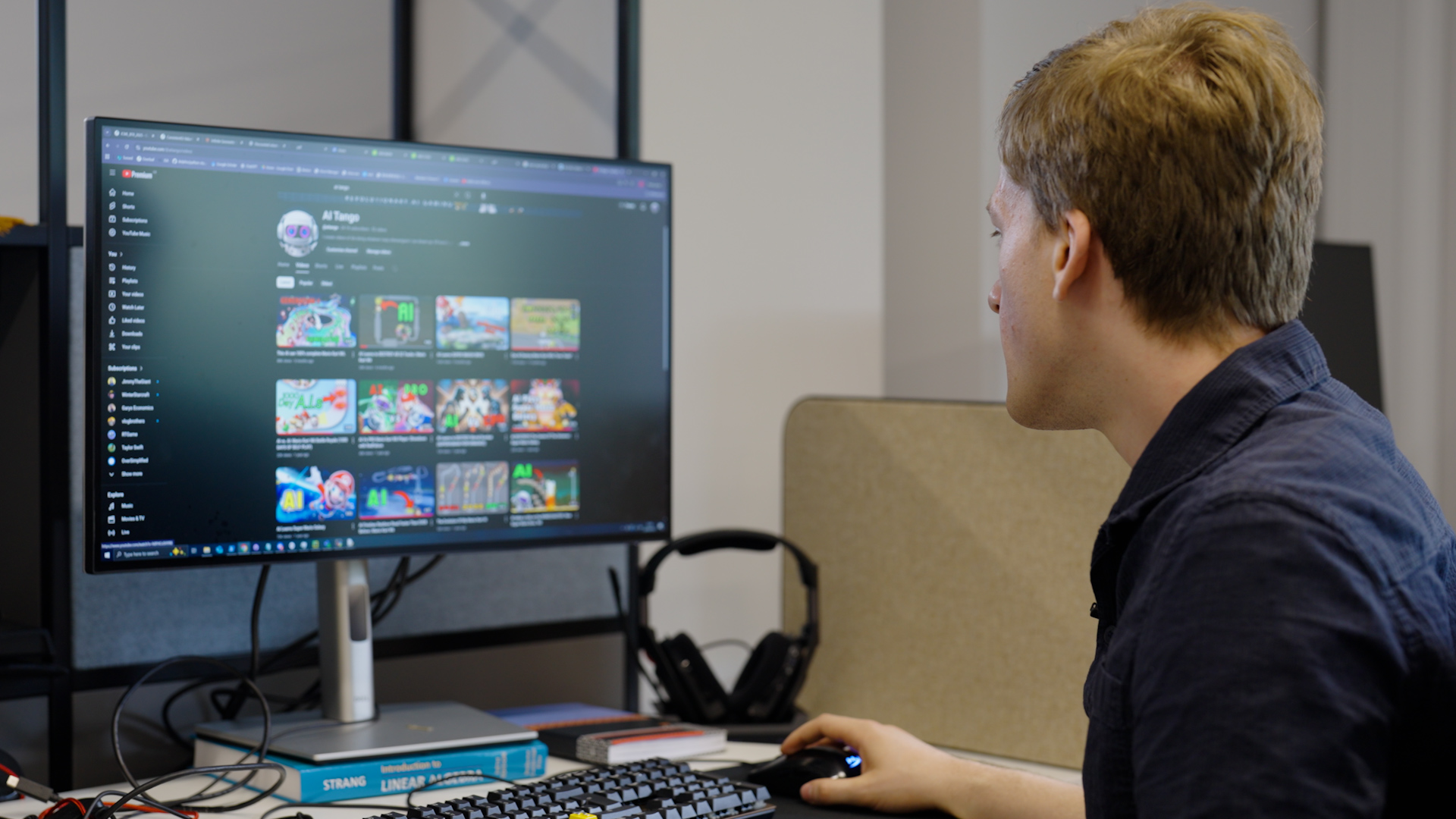
A Southampton student has developed a new type of sustainable AI that works using visual trial and error.
The AI, created by University of Southampton PhD student Tyler Clark, runs via a desktop computer rather than relying on large remote data centres like similar popular AI algorithms, making it far more environmentally friendly.
Tyler used Mario Kart to train the AI, programming it to persist with trial and error until it can beat the game.
His AI system, called Beyond the Rainbow, learns and defeats computer games - but its potential is far wider reaching.
Tyler said: "Beyond the Rainbow learns based on what it sees, then trying to beat it over and over again - so it could be applied to anything with a visual element. For example, if you attached a camera to a robot arm and programmed it as the robot arm's vision, it could learn to grasp or perform tasks via trial and error in the same way."
Sustainability was the main objective in developing Beyond the Rainbow.
Tyler explained: "I really wanted to develop AI that can run on a desktop PC instead of relying on large data centres that use a lot of power.
"To do this, we integrated six improvements into a pre-existing model that would allow it to learn quicker and therefore use less energy. One of these improvements was adding the capability for the AI to play and learn simultaneously, whereas the previous model had to finish a level before it could integrate the learnings."
Beyond the Rainbow works by being positively rewarded when it reaches a new milestone in a game - such as turning a corner or completing a lap - and is negatively rewarded when it crashes. It's a type of machine learning called deep reinforcement learning.
"After setting up the positive and negative rewards, the AI is left to play the game thousands of times until it gets good at it," explained Tyler.
"The AI learns and develop its own skills thanks to a neural network which simulates the decision-making process in a human brain."
Tyler shares his progress on his YouTube channel , where his videos attract hundreds of thousands of views.
The latest version of Beyond the Rainbow is available for free through Github , a code sharing platform.
"I would really encourage anyone with an interest in machine learning to use Beyond the Rainbow and build upon it," added Tyler.






